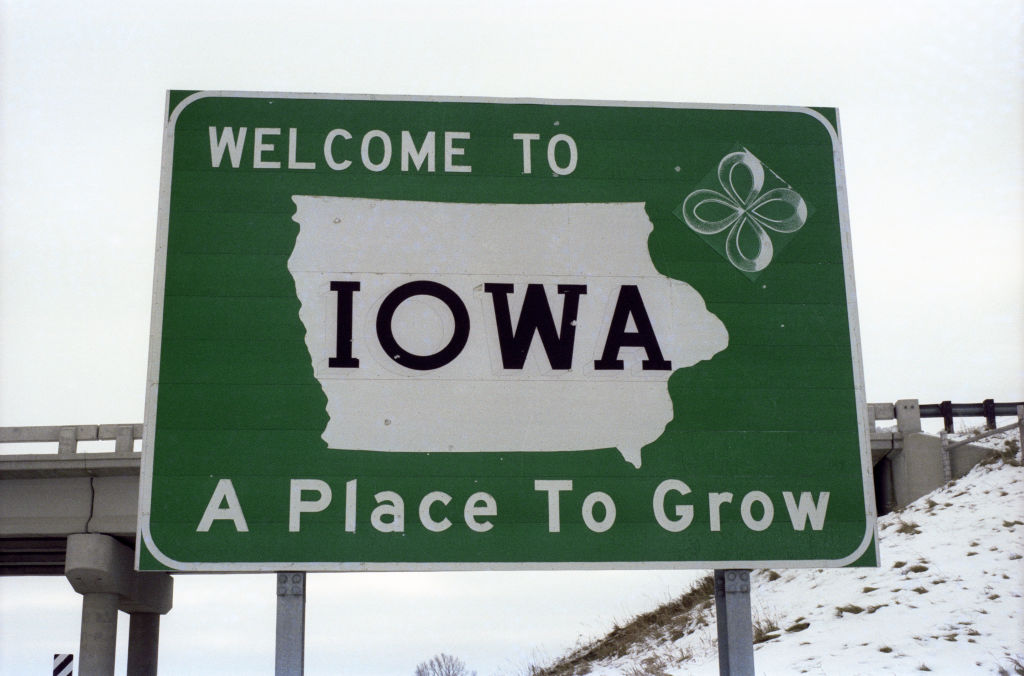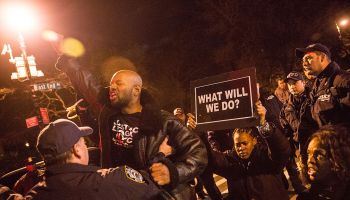Despite a slight dip in the overall national unemployment rate for African-American adults, the number still remains unacceptably high as applicants continue to battle against a welter of socioeconomic challenges, including a lack of education and hiring connections.
RELATED: Unemployment Rate Drops To Lowest Number In 4 Years At 7.4 Percent
The Department of Labor’s latest jobs report, which was released last Friday, shows that 12.6 percent of Black Americans were unemployed in July, compared to 13.7 percent in June. This is the lowest rate since Barack Obama became president, when the Black unemployment rate was also 12.6 percent.
A stunning unemployment rate among Black 18- to- 29-year-olds continues to rattle experts at 20.9 percent. According to Generation Opportunity, a national, non-partisan youth advocacy organization that released its “Millennial Jobs Report for July 2013” on Friday, Black unemployment numbers are problematic.
“Both numbers are just way too high,” Terence Grado, policy director of Generation Opportunity, told NewsOne about the Black adult and youth unemployment rates. “It’s just way too high. They’ve been that way for many years now. We need to get serious about addressing these numbers. There is a real human impact behind them. There are young people graduating from college without real employment opportunities or their shot at the American Dream.”
The numbers come out as President Obama, the nation’s first Black president, shifts his agenda to the economy. In his “grand bargain” budget proposal, unveiled last week, he highlighted the importance for Congress to end the stalemate and act on his plan to shore up the middle class.
“If folks in Washington want a ‘grand bargain,’ how about a grand bargain for middle class jobs?” President Obama said before a crowd at the Amazon distribution center in Chattanooga, Tenn., the first leg of his most recent jobs tour, CNN reports.
“During his speech the President proposed to Republicans a deal: he would accept a corporate tax decrease if they would pass some of his spending proposals, such as infrastructure improvements, with some of the accompanying savings from the tax cut,” CNN reported.
Over the years, the President has come under heavy criticism by critics such as Tavis Smiley and Cornel West, hosts of the nationally syndicated public-radio program Smiley & West, for failing to forcefully tackle unemployment in the Black community. But proponents, such as MSNBC commentator Al Sharpton, have cut him slack, understanding that some of his congressional roadblocks have been racial.
Indeed, as NewsOne has previously reported, while there has been some progress, African Americans are still being hit hard by socioeconomic disparities. According to the National Urban League‘s 2013 “State Of Black America” address, in 1963, Black unemployment was at 10 percent; currently, it stands at 12.6 percent. Further, African Americans only make 90 cents on the dollar compared to White Americans in the private sector. Unfortunately, that number dropped to 88 cents per dollar in the public sector.
During the ’60s, the report says, there were five Black graduates for every one graduate. Today, 85 percent of African Americans finish high school today, compared with 25 percent in 1963. Since that year, the percentage of Blacks living in poverty has gone from 48 to 28 percent in 2013. Children of color have also benefited, with only 38 percent at the poverty line, compared with 57 percent in 1963.
Civil rights organizations and elected officials across the nation are working hard to develop plans to help put a dent in the Black unemployment rate. In Chicago, for example, the Chicago Urban League, announced a partnership with the Coca-Cola Foundation to prepare residents to enter the workforce and advance their careers last month. Coca-Cola presented the Urban League with a $50,000 grant to support its comprehensive “Success Strategies” program.
The 10-day training workshop equips individuals with skills to conduct job searches that ultimately lead to employment, according to a news release. The workshop helps participants create portfolios that include: cover letters, personal statements; mission statements; resumes, reference lists, and career assessments. After obtaining a job, individuals then move on to work with employment and job retention specialists.
“We are committed to training and developing the talent that is right here in our community to meet the needs of today’s workforce,” Andrea L. Zopp, president and CEO of the Chicago Urban League, said in the news release. “Our Workforce Development Department works strategically and persistently to help people navigate how to find a job and overcome obstacles that may impede on their success.”
To be sure, much more needs to be done to see a marked reduction in the Black unemployment rate.
“It’s abysmal,” Grado said of the Black youth and adult unemployment rates. “Much more needs to be done. We need to help the middle class and move part-time workers in to full-time jobs. We need to focus on employing people in the private sector. We need to create an economic environment that allows people to start their own businesses without burdensome regulations. We need to do all of this sooner rather than later. We are loosing a whole generation of workers.”
Sound off!
RELATED: Expert: Black Unemployment Compounded By White Favoritism During Hiring
























